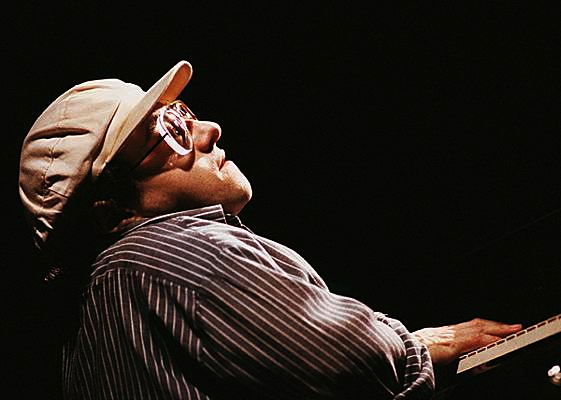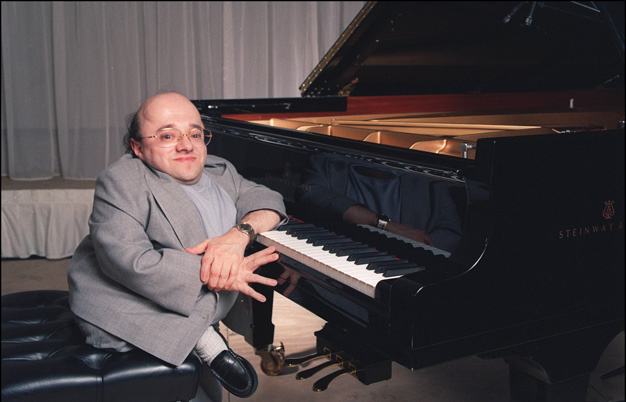
Petrucciani could do anything, and more than most of the best players of the day. He played across the full span of the grand piano’s keyboard and, despite his tiny legs, was able to make full use of the instrument’s pedals – the loud one was of particular importance to him.
“I don’t believe in geniuses,” he said. “I believe in hard work. Ever since I was a child I knew what I wanted to do and worked for that. “I don’t want to get too intellectual about my music. My philosophy is quite simple. For one thing – too much intellectualising is boring. Too much comedy is boring. Too much of anything is boring. We all need to know when to get off, to simply stop.
Petrucciani was one of the most passionate and extrovert of soloists and the aggressive hurdling of his up-tempo work established an exciting bond with his audience. His interest was primarily in simply playing; he spent little time reharmonizing or arranging. “When I play, I play with my heart and my head and my spirit… I don’t play to people’s heads, but to their hearts.”
Michel Petrucciani was a national hero in France, and his records were best sellers in Europe. French President Jacques Chirac was among the many who paid tribute to him, praising his ability to “renew jazz, giving himself up to his art with passion, courage and musical genius.” He called him an “example for everyone.”


